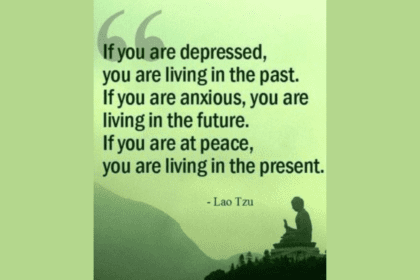From the pandemic to politics, Americans have experienced unprecedented stress over the past year, and studies show, the human body was not meant to sustain stress over long periods of time.
People are stress eating, ‘procrastibaking‘, acting out, and some are choosing to just stay in bed. Here are some practical tips for coping and calming down that I shared with KRON 4 Morning News Anchor Marty Gonzalez
1. Breathe With Your Diaphragm (Know Your B-IQ)
Breathe “intelligently”. The B-IQ is a functional measurement that indicates if you are breathing with your shoulders (vertical breathers) or with your diaphragm (horizontal breathers).
- If you breathe ‘horizontally’ (with your diaphragm), you’re more apt to be calmer.
- If you breathe ‘vertically’ with your shoulders (your shoulders rise and fall with each breath), you’re using the ancillary muscles, which increase heart rate, blood pressure, and cortisol (stress hormone).
How to Calculate Your B-IQ
1. Find the bottom of your front rib (it should be directly below your nipple).
2. Loop a cloth measuring tape around your body at this place. (Make sure the tape measure isn’t drooping in the back, and it’s snug.)
3. Take a measurement on the INHALE.
4. Then EXHALE completely and take a second measurement.
- If your exhale measurement is 20 inches or more, your inhale should exceed that number by at least 2 inches.
- If your exhale measurement is 30 inches or more, your inhale should exceed that number by at least 3 inches.
- If your exhale measurement is 40 inches or more, your inhale should exceed that number by at least 4 inches.

2. Move for 3 Minutes
When you exercise, your body releases endorphins — your body’s natural pain reliever. Endorphins help relieve pain and stress and lead to feelings of well-being and euphoria (“runner’s high”). Physical activity also stimulates the release of other “happy hormones”, such as:
- Dopamine — The “feel-good” hormone Dopamine helps you feel pleasure (e.g., the enjoyment you get when eating your favorite food or listening to your favorite song).
- Serotonin — Serotonin helps regulate your mood. It’s a mood stabilizer and boosts feelings of wellbeing and happiness. Research shows that depression is linked to low levels of serotonin.
It takes just three minutes of exercise to cause these chemicals to flow. So run in place, do jumping jacks, play some music and dance around the room!
Certain foods, such as chocolate or chili peppers, can also enhance the secretion of endorphins.
3. Focus on Your Feet
The anxiety zones tend to be in the chest and neck, but excessive emotional stress and anxiety are literally felt from head to toe with the symptoms being very subtle.
Symptoms, such as:
- Uncomfortable burning and numbness in the feet, cold feet, or sweaty feet due a sudden release of adrenaline and hyperventilation that moves blood away from the feet. NOTE! These symptoms can also indicate other medical conditions, so be sure to get them checked out if they persist, and don’t assume it’s anxiety.
- Restlessness of the legs that disturbs sleep.
- Tensing of muscles that adversely affect the way you walk.
Head-to-Toe Calming Exercise Here’s a way to focus on the present and get “grounded”. While standing (or sitting with feet on the floor), focus on your feet.
- How do they feel? Are they warm or cold?
- Are they tingly? Moist or dry?
- Wiggle your toes. Feel the soles of your feet.
- Feel the ground beneath you through your shoes.
![]() Karen’s Fit Tip: The mind-body connection is very powerful. By controlling your body, you have the ability to also control your mood.
Karen’s Fit Tip: The mind-body connection is very powerful. By controlling your body, you have the ability to also control your mood.





